Compose - Online SQL Editor
Alation Compose
Compose is an intelligent SQL editor integrated with the data catalog to help everyone — including business users — get value from SQL.
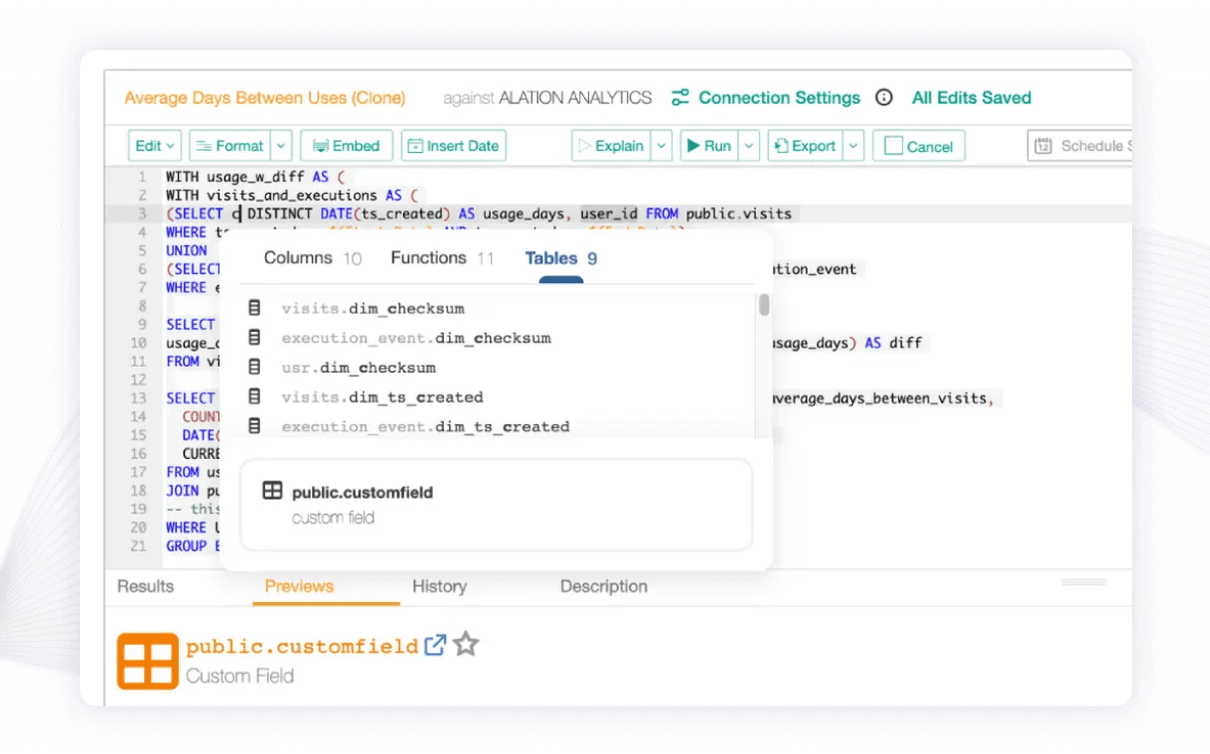
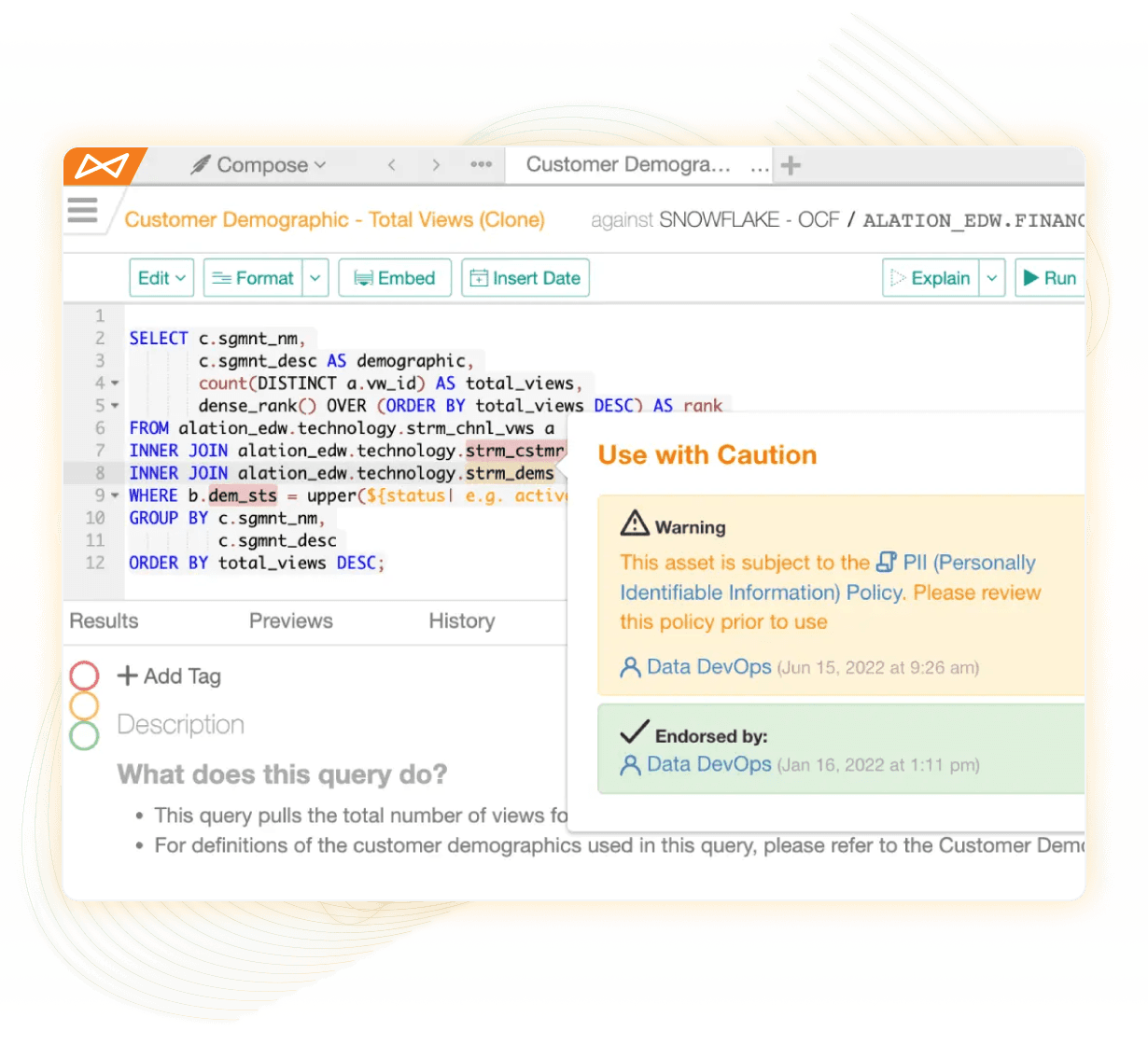
Real-time guidance
Compose guides SQL code writers to the right data and away from wrong data. It uses real-time color-coding to show data quality and recommend the best tables and columns based on popularity. Improve the trustworthiness of query results and ensure compliant data use.
Publish, share, and reuse
Publish SQL queries written in Compose into Alation for wider use. Share and reuse SQL queries across your data community. Cut down on duplicating queries, and save an enormous amount of time and effort.
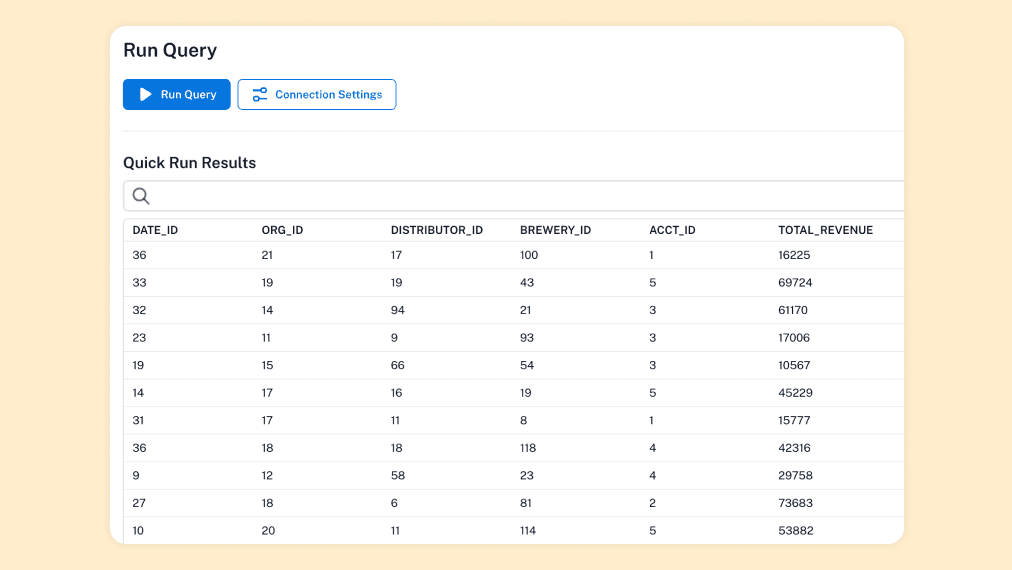
SQL for non-SQL people
Boost self-sufficiency: Business users can answer questions without analysts. Interactive SQL forms help new users self-serve. Anyone can edit filters with dropdown menus and run custom queries.
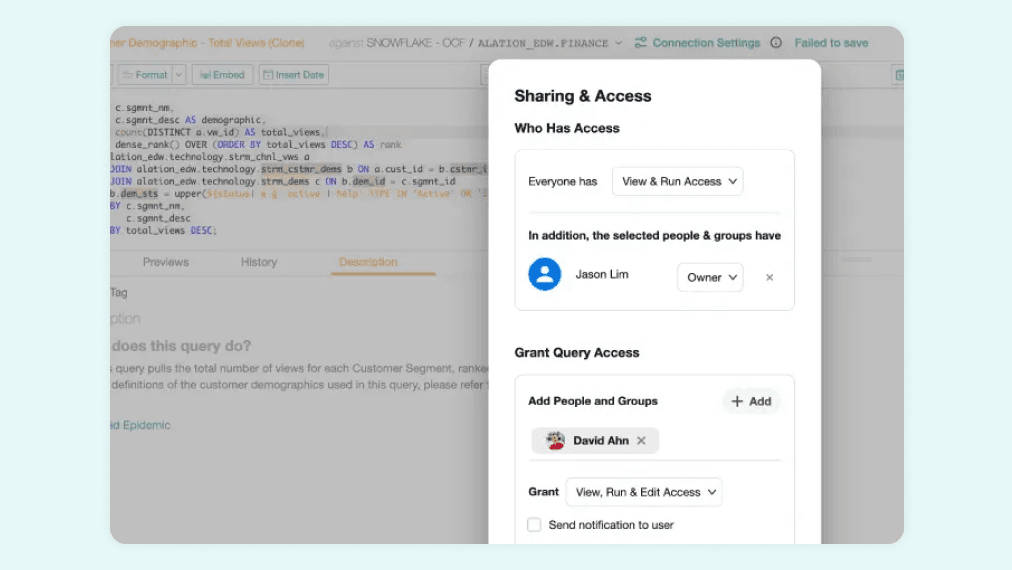
Collaborate with teams
Empower business users to seamlessly connect with expert SQL writers who can help craft, refine, and optimize complex queries. Experts maintain granular control over query access for accuracy and compliance.
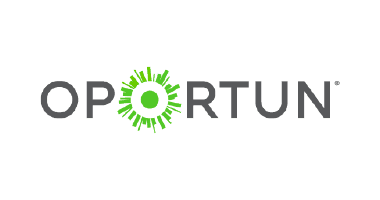
"Compose is a SQL editor built right into Alation and what sets it apart is now in one view you are able to see not only the metadata that has been ingested for a data object, but you’re also able to query those data objectives. That kind of a marriage, I believe, in my experience, is unique to Alation."
Frequently asked questions
Teams can collaborate securely in Alation Compose by sharing queries, controlling granular access to edit or view queries, tracking query version history, and leveraging built-in messaging to consult data experts while maintaining compliance with data governance policies. Certain data sources can be configured to restrict access and prevent access to sensitive data, ensuring that collaboration occurs within secure, governed boundaries. Compose’s web-based IDE also supports sharing reusable query snippets for faster teamwork.
Alation Compose is integrated with the data catalog to offer real-time metadata, popularity-based recommendations, and data quality alerts directly in the SQL editor. It provides autocomplete powered by cataloged schema information, helping users select trusted, well-documented data. Queries written in Compose’s web-based IDE can be published into the Alation catalog for wider discovery and reuse, promoting knowledge sharing and compliance.
Alation Compose integrates with your existing data sources and catalog. It acts as a universal SQL interface that can connect directly to multiple relational databases—such as MySQL, PostgreSQL, Oracle, and more—using the same backend as Alation. This integration centralizes query management and access, providing unified visibility, cross-platform search, and governance for all connected sources within your organization.